Solar Panel
Showing all 11 resultsSorted by latest
-
Sale!
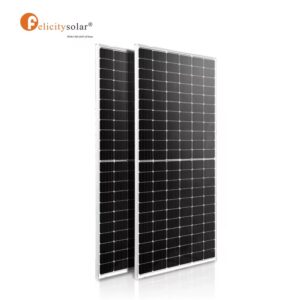
680W Felicity Solar Panel
Original price was: ₦155,000.00.₦140,000.00Current price is: ₦140,000.00. Add to cart -
Sale!
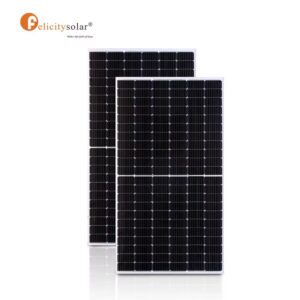
550W Felicity Solar Panel Price in Nigeria
Original price was: ₦145,000.00.₦135,000.00Current price is: ₦135,000.00. Add to cart -
Sale!
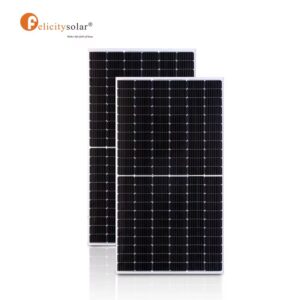
540W Felicity Solar Panel
Original price was: ₦140,000.00.₦130,000.00Current price is: ₦130,000.00. Add to cart -
Sale!
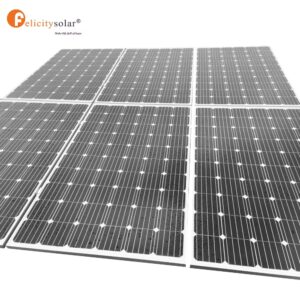
325W Felicity Solar Panel
Original price was: ₦96,000.00.₦90,000.00Current price is: ₦90,000.00. Add to cart -
Sale!
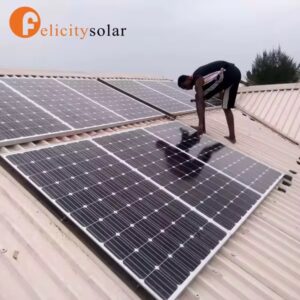
400W Felicity Solar Panel
Original price was: ₦135,000.00.₦120,000.00Current price is: ₦120,000.00. Add to cart -
Sale!
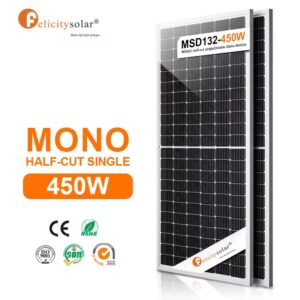
450W Felicity Solar Panel
Original price was: ₦135,000.00.₦125,000.00Current price is: ₦125,000.00. Add to cart -
Sale!
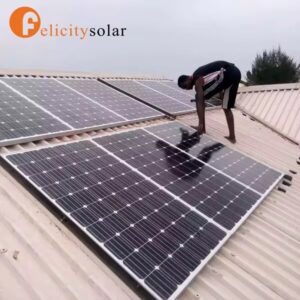
260W Felicity Solar Panel
Original price was: ₦95,000.00.₦85,000.00Current price is: ₦85,000.00. Add to cart -
Sale!
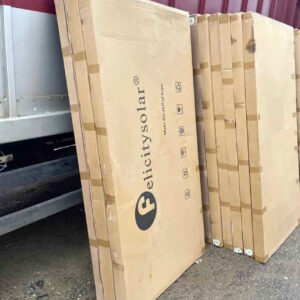
350W Felicity Solar Panel
Original price was: ₦120,000.00.₦110,000.00Current price is: ₦110,000.00. Add to cart -
Sale!
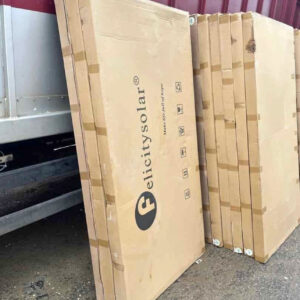
300W Felicity Solar Panel
Original price was: ₦110,000.00.₦100,000.00Current price is: ₦100,000.00. Add to cart -
Sale!

280W Felicity Solar Panel
Original price was: ₦100,000.00.₦90,000.00Current price is: ₦90,000.00. Add to cart -
Sale!
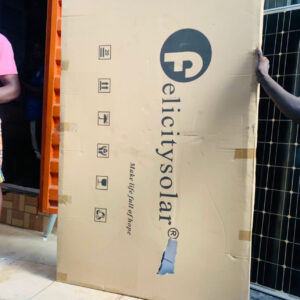
175W Felicity Solar Panel
Original price was: ₦90,000.00.₦80,000.00Current price is: ₦80,000.00. Add to cart
Felicity Solar Panel Price List in Nigeria: Your Ultimate Guide
Reliable and affordable energy is essential in Nigeria. With unstable electricity and rising costs, solar power offers a dependable and cost-effective choice. Felicity Solar is a leading brand, known for its quality and smart energy solutions. This guide details the Felicity Solar panel price list in Nigeria. It provides information to help you make a smart investment for your home or business. We will look at factors that affect prices and show available product types. We also give practical tips for navigating the Nigerian solar market.
Understanding solar power costs is your first step towards energy independence. This article will explain Felicity Solar panel pricing clearly. It will show you what to expect. By reviewing different panel types, capacities, and likely installation costs, you can better plan your solar project. You can then confidently pick the system that fits your needs and budget.
Understanding Felicity Solar Panel Pricing in Nigeria
This section explains solar panel costs, focusing on Felicity Solar in Nigeria. It covers general factors influencing prices before reviewing specific product lines.
Factors Affecting Felicity Solar Panel Prices
Several key variables contribute to the final price of Felicity Solar panels in Nigeria. Understanding these helps you budget effectively.
- Panel Technology (Mono vs. Poly): Monocrystalline panels (mono) offer higher efficiency and better low-light performance. Polycrystalline panels (poly) are usually more affordable. Mono panels often cost more due to their advanced manufacturing and superior output per square meter.
- Panel Capacity (Wattage): Higher wattage panels provide more power. Panels like 550W naturally cost more than 330W units. This is because they deliver greater energy output from a single unit. Your system size directly relates to the total wattage needed.
- Brand Reputation and Quality: Felicity Solar has an established name for reliability. This reputation for quality components and performance affects its pricing. Reputable brands often carry a premium due to their proven track record.
- Import Duties and Taxes: Government levies on imported solar equipment impact prices. These duties and taxes raise the total cost for distributors. These costs are then passed on to the consumer.
- Supplier and Retailer Markups: Different distributors and retailers add their own profit margins. These markups can vary. They affect the final price you pay for the solar panels.
Current Market Trends for Solar in Nigeria
The broader Nigerian solar market provides important context. It shows where Felicity Solar fits within this growing sector.
- Growing Demand: Nigeria sees increased solar energy adoption. This rise is due to inconsistent grid power and increasing diesel generator costs. Many homes and businesses seek stable, cheaper power. Solar offers a reliable alternative to traditional energy sources.
- Government Initiatives: The Nigerian government supports renewable energy growth. Schemes like the Rural Electrification Agency (REA) focus on expanding solar access. These efforts can influence market dynamics and adoption rates.
- Competition: The solar market in Nigeria is competitive. Many local and international brands offer solar solutions. This competition often benefits consumers, leading to a range of choices and price points. Felicity Solar maintains its position through quality and broad product offerings.
Felicity Solar Panel Models and Their Price Ranges
This section details specific Felicity Solar panel models. It outlines their approximate price points in the Nigerian market. Prices are presented as ranges due to market shifts.
High-Efficiency Monocrystalline Panels
Felicity's monocrystalline panels offer premium performance. They are known for better power output in various light conditions.
- Felicity 550W Monocrystalline Panel: This high-wattage mono panel features advanced cell technology. It excels in converting sunlight to electricity efficiently. Ideal for large residential properties or commercial setups, it reduces the number of panels needed. This saves space and simplifies installation.
- Estimated Price Range (NGN): ₦125,000 - ₦180,000
- Key Benefits: It offers superior efficiency, performs well even in low light, and has a smaller physical footprint per watt. This panel delivers maximum power for demanding applications.
- Felicity 450W Monocrystalline Panel: This popular mono panel provides excellent efficiency for diverse needs. It balances high output with a manageable size. This panel is suitable for medium-sized homes and small businesses seeking dependable power. It is a robust choice for many solar projects.
- Estimated Price Range (NGN): ₦95,000 - ₦140,000
- Target Audience: This panel suits those needing strong performance without the highest possible wattage. It offers a great balance of cost and efficiency for average consumption.
Cost-Effective Polycrystalline Panels
Felicity also offers polycrystalline options. These panels are typically more budget-friendly, providing good value.
- Felicity 330W Polycrystalline Panel: This typical polycrystalline panel offers a solid value proposition. It is a reliable choice for budget-conscious projects. These panels are often preferred for larger installations where roof space is not a primary concern. They provide consistent power at a lower cost per watt.
- Estimated Price Range (NGN): ₦60,000 - ₦90,000
- Ideal Use Cases: Polycrystalline panels are a good fit for projects where initial investment is a key factor. They are great for installations with ample space. They are also useful for agricultural or remote power needs.
- Bulk Purchase Considerations: Discounts are often available when purchasing multiple panels. Buying in larger quantities can reduce the per-unit cost. Always ask about bulk discounts when planning larger solar installations. This can significantly lower your overall project expenses.
Beyond Panels: Associated Costs of a Felicity Solar System
Panel price is only one part of the total solar system cost. This section covers other essential components and their costs.
Essential Solar System Components and Their Costs
Other necessary parts contribute to the complete solar system cost. These components ensure your system functions correctly and reliably.
- Inverters (Hybrid, Off-Grid, On-Grid): Inverters convert DC power from panels into usable AC power. Hybrid inverters work with both grid and battery. Off-grid inverters rely solely on batteries. On-grid inverters feed power directly to the utility grid. Their prices vary greatly based on type, capacity, and features.
- Batteries (for Off-Grid/Hybrid Systems): Batteries store excess solar energy for use when the sun is not shining. Lithium-ion batteries offer long life and deep discharge. Gel batteries are a more traditional, cost-effective option. Battery capacity and technology significantly affect overall system price.
- Mounting Structures and Accessories: These include frames, rails, clamps, and other hardware. They secure panels to your roof or ground. Wires, cables, and connectors also add to the cost. These parts ensure safe and proper system operation.
- Charge Controllers: Charge controllers manage power flow from solar panels to batteries. They prevent overcharging and extend battery life. MPPT (Maximum Power Point Tracking) controllers are more efficient. PWM (Pulse Width Modulation) controllers are more budget-friendly. Their cost depends on type and capacity.
Installation and Maintenance Costs
Labour and ongoing costs are also part of owning a solar system. These aspects are crucial for long-term performance.
- Professional Installation Fees: Installation costs depend on system size and roof complexity. Larger systems or challenging roof structures require more labour. Always get multiple quotes from certified solar installers. This ensures competitive pricing and quality workmanship.
- Warranty and After-Sales Support: Warranties cover panels and other components. They ensure long-term value and peace of mind. A strong warranty protects your investment against defects. Good after-sales support ensures help is available if issues arise.
- Routine Maintenance: Solar systems need minimal maintenance. This includes occasional panel cleaning. Inspections check for wear or damage. These small, necessary tasks ensure optimal system performance. They help extend the life of your solar equipment.
Where to Buy Felicity Solar Panels in Nigeria
Knowing where to find legitimate suppliers and competitive pricing is key. This section guides you through the purchasing process.
Authorized Distributors and Retailers
Identifying trustworthy sources ensures you receive genuine Felicity Solar products.
- Finding Certified Dealers: Look for official Felicity Solar distributors. You can also search for highly-rated solar companies in Nigeria. Reputable solar firms often list their brands and pricing transparently online. This helps confirm product authenticity and warranty support.
- Importance of Genuine Products: Beware of counterfeit solar products. These items may fail early or perform poorly. Buying from authorised dealers guarantees genuine Felicity Solar panels. It also ensures you receive valid warranties and technical support. Counterfeit items pose safety risks and offer no reliability.
Getting the Best Price: Negotiation and Quotes
Practical advice helps you secure favorable pricing for your solar investment.
- Requesting Detailed Quotes: Always ask for itemised quotes. These should detail costs for panels, inverters, batteries, and installation labour. An itemised quote helps you understand each component's cost. This clarity aids in comparing offers accurately.
- Comparing Offers: Do not settle for the first quote. Compare proposals from different reputable suppliers. Look at both component prices and installation fees. This comparison ensures you get the best value for your investment.
- Seasonal Sales and Promotions: Watch for potential promotional periods. Solar suppliers may offer discounts during specific seasons or holidays. Subscribing to newsletters from solar companies can keep you informed of these deals.
Making an Informed Decision: Key Considerations
This section helps you use the gathered information wisely. It supports making a smart purchasing choice for your solar system.
Assessing Your Energy Needs
Understanding your energy consumption is vital. It helps determine the right system size for your property.
- Calculating Power Consumption: List all electrical appliances in your home or business. Note their wattage and how many hours they run daily. Sum these values to get your daily energy usage in Watt-hours (Wh) or Kilowatt-hours (kWh). Many online tools can assist with this calculation.
- Determining System Size (kWp): Your calculated energy needs directly translate into required solar panel capacity. A solar expert can help you size the system correctly. They account for local sunlight levels and your specific usage patterns.
- Actionable Tip: Consulting with a solar expert is highly recommended. They can accurately assess your energy requirements. This prevents under-sizing or over-sizing your system.
Return on Investment (ROI) and Payback Period
Understanding the financial benefits helps you see the long-term savings of solar energy.
- Calculating Savings on Electricity Bills: Solar panels significantly reduce or remove your reliance on grid power. This directly lowers your monthly electricity bills. Over time, these savings accumulate, covering the initial investment.
- Factors Influencing ROI: Several factors affect your solar system's return on investment. These include the initial investment cost, current electricity tariffs, and system performance. Maintenance costs also play a role. Higher electricity prices improve your ROI faster.
- Statistics (Example): In Nigeria, solar systems can offer a payback period. This typically ranges from 3 to 7 years. It depends on factors like system size, energy consumption, and local electricity costs.
Conclusion: Investing in a Brighter Future with Felicity Solar
Investing in Felicity Solar panels in Nigeria offers a clear path to energy independence. You have learned about understanding panel types, associated costs, and finding reliable suppliers. Felicity Solar provides quality, durable solar solutions. These products are well-suited for the Nigerian climate and energy demands.
Choosing Felicity Solar means choosing a reliable brand. Their panels offer high performance and lasting value. By carefully planning your system and managing costs, you make a smart investment. Embrace solar energy for financial savings and a stable power supply. This decision powers a brighter, more sustainable future for you and your community.
